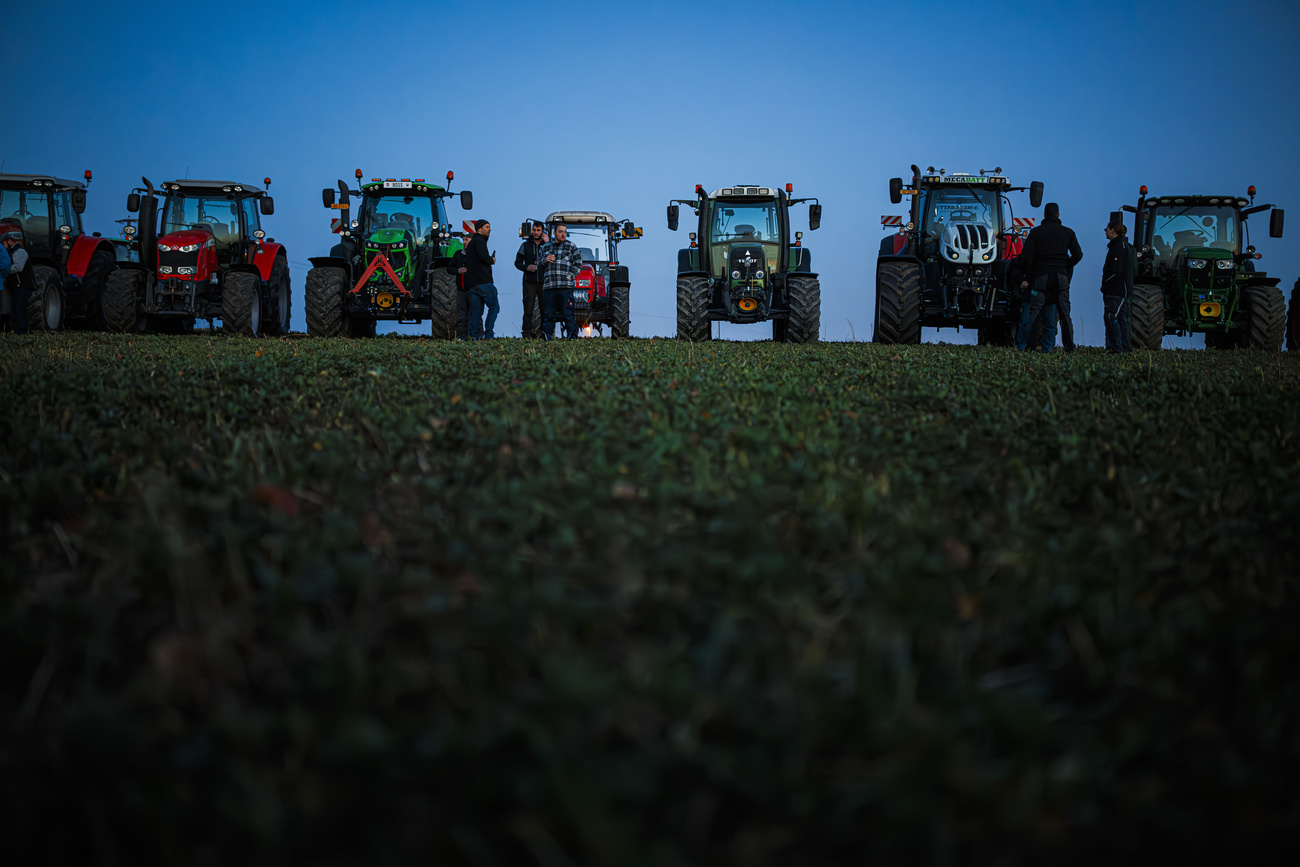Swiss Farmers’ Union president warns against over-aggressive protests

Markus Ritter has called for the recent protests to lead to better prices for producers. He also warned farmers against demonstrating to the point of creating a bad image.
“Farmers are very well established in the political arena,” the parliamentarian from the Centre party told Swiss public radio, SRF on Saturday.
In Switzerland, he said, the public might not show be so understanding should farmers engage in the sort of aggressive demonstrations seen in Belgium and France.
Up to now, farmers have understood that they have to win over the public in a moderate way, Ritter said. He compared this to the tactics of climate activists who choose to glue themselves to the road to prevent vehicles from passing. Such increasingly aggressive methods are incomprehensible and undermine their long-term objective, he argued.
+ More on why Swiss farmers are joining Europe-wide protests
Ritter admitted that he had been surprised by the scale of the farmer demonstrations in recent weeks. In the last 30 to 40 years, he had never seen the grassroots, and especially young farmers, capable of organising such actions.
Pressure bears fruit
This pressure from the grassroots has made a significant contribution, notably by leading to a raise of the price of milk by three cents per litre, as announced on Friday evening.
Ritter pointed out that farmers have to bear hidden costs of around CHF300 million ($339 million), which represents 5% to 10% of producer prices.
Until now, it has been the 60 or so inter-professional organisations which have negotiated prices with major retailers. “There was an imbalance,” he said. In future, the Swiss Farmers’ Union will become more involved in these negotiations.
+ Read more: farmers angry at profit margins of big Swiss supermarkets
Ritter also pointed out that consumer prices had risen more sharply than farmers were receiving for their produce. This means that processing and trade margins have risen more acutely.
“We need our share too, and it has been steadily decreasing over the last few years”, he said. The positive energy of the protest movement must now be used to obtain higher prices for products.
Translated from French by DeepL/dos
This news story has been written and carefully fact-checked by an external editorial team. At SWI swissinfo.ch we select the most relevant news for an international audience and use automatic translation tools such as DeepL to translate it into English. Providing you with automatically translated news gives us the time to write more in-depth articles.
If you want to know more about how we work, have a look here, and if you have feedback on this news story please write to english@swissinfo.ch.

In compliance with the JTI standards
More: SWI swissinfo.ch certified by the Journalism Trust Initiative
You can find an overview of ongoing debates with our journalists here. Please join us!
If you want to start a conversation about a topic raised in this article or want to report factual errors, email us at english@swissinfo.ch.